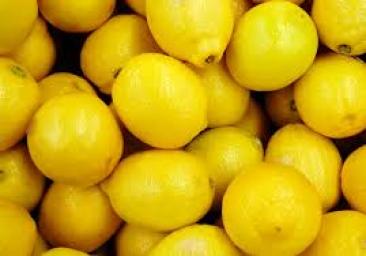Our Lemons
I got up early. I promised I would help pick the lemons before I went to school. My family has more than 20 lemon trees. My father has a job in town. He works at the post office. He delivers mail. But the lemon trees help us make money.
We live in southern California. It is warm most of the time. So the lemon trees stay green all year round. We have a big grove of lemon trees.
My father says California grows the most lemons of any place in the world. Every day we check the lemons to see if they are about two inches big. When they get that big, they are ready to pick.
They still are green when we pick them. We put them into baskets. Most people think they are yellow when they grow. But they turn yellow after we pick them and put them in the baskets. There are always baskets of lemons outside our house. When they start to turn yellow, my father takes the basket of lemons into town. He sells them to stores.
The lemons grow all year. Every day, there are some to pick. So we always have a job to do. Some times of year there are more lemons. Those weeks we work all day on Saturday and Sunday to get the lemons. My father may have to make a few trips into town with the lemons.
Once my father let one lemon stay on the tree. He wanted to see how big it would get. First it turned yellow. Then it turned orange like a pumpkin. It got as big as a pumpkin, too. Finally, it was so big and heavy it fell off. I tasted it, but I didn’t like it. My father said, pick them when they’re green and small. They will taste better. They are like other citrus fruits. You want to pick grapefruit, oranges, and lemons when they are green.
Down the road from us is a really big lemon grove. They have hundreds of trees. Workers pick them and put them into crates. Then they take them to the train station. They ship them with oranges they grow, too. They send them to far away places. By the time they get to where they are going, they turn yellow. There are people who buy them all over the world.
My mother says that lemons are great but not by themselves. She would like us to grow apples, but my father says that we can’t do that, the weather is not right. But when he goes to the store he comes back with apples. Those apples grow in Washington state.
My mother says our kitchen has foods from many places. She likes to drink tea from China. She puts our lemons into it and some sugar. She says the sugar comes from Brazil. So there are three countries in that one cup.
